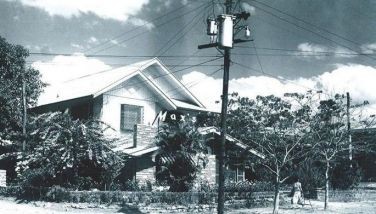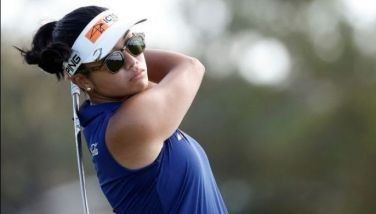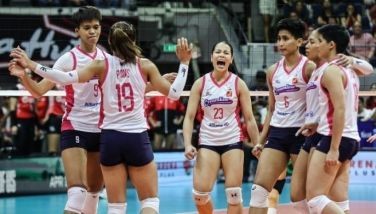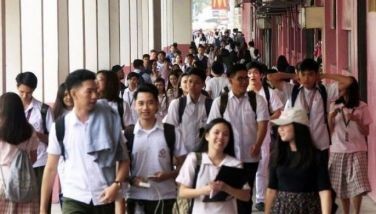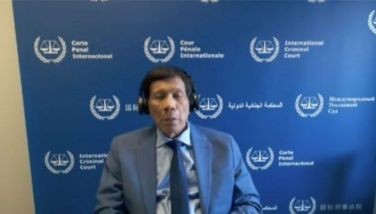Pinoy presence in FIBA

PLDT chairman/SBP president Manny V. Pangilinan’s appointment to the FIBA Central Board has brought new life and recognition to the Philippines which was for long the subject of discomfort within the global basketball community, serving three suspensions in 1963, 2001 and 2005-07.
It’s widely known that all over the world, basketball is the No. 1 sport in only the Philippines and Lithuania. It’s also widely known that in the Philippines, politics in sports is an ugly reality. When the Philippines was booked to host the FIBA World Cup (then known as the World Championships) in 1963, the government refused to allow the Yugoslavian national team entry into the country because of its Communist leanings. That threw the preparations for the World Cup out of whack, resulting in a suspension on the Philippines. Yugoslavia had played at the 1960 Rome Olympics so it wasn’t as if there was a global ban that the Philippines enforced. How ironic that when Manila finally hosted the FIBA World Championships in 1978, Yugoslavia won the crown.
Then came the much-publicized rows involving the discredited BAP (Basketball Association of the Philippines), first in an internal leadership dispute and second, in a battle against the POC. FIBA put its foot down on the Philippines and ordered a suspension from international competitions in 2001 and later, 2005-07. In the end, the BAP was stripped of recognition as the country’s governing body for basketball by the POC and the SBP was born to take over. It took Pangilinan several years to gain FIBA’s trust and confidence. Eventually, FIBA secretary-general Patrick Baumann realized the Filipinos’ love for the game was genuine and Pangilinan’s leadership was for the good of the country.
When FIBA recognized the SBP in 2007, Baumann told Pangilinan it wouldn’t be until 2016 for the Philippines to become a contender at the world level. “We’re two years ahead of schedule,” said Pangilinan after the Philippines returned to the FIBA World Cup after its last appearance in 1978. The first step was when the Philippines made a solid impression on the basketball community by hosting the highly-successful FIBA Asia Championships as a late replacement for Lebanon last year. Gilas’ gutsy showing in Spain was icing on the cake.
Now, Pangilinan has been appointed to the FIBA Central Board, a clear indication that the Philippines is back in good graces and solid footing. There are 26 members in the Central Board and the only appointees for the 2014-19 term are Pangilinan, Julia Anikeeva of Russia, Erick Thohir of Indonesia, NBA representative Mark Tatum of the US, players’ representative Vlade Divac of Serbia and Richard Carrion of Puerto Rico. Pangilinan, Anikeeva and Divac are presidents of their national federations. Thohir is president of SEABA while Tatum is the NBA deputy commissioner and chief operating officer. Carrion is an IOC member and CEO/Chairman of Popular, Inc.
Of the 26 members, four are from Asia – Pangilinan, Thohir, Tian Xiao of China and Sheikh Saud Bin Ali Al Thani of Qatar. No country has more than one representative except the US with Jim Tooley and Tatum. The highest-ranking Asian in the Central Board is Tian who was designated vice president. Tian is China’s vice minister of sport in charge of basketball. FIBA’s new president is Horacio Muratore of Argentina, replacing Yvan Mainini of France. Mainini is now president of the International Basketball Foundation with Sheikh Saud as vice president.
Aside from Pangilinan, FIBA has appointed two more Filipinos to serve a fresh four-year term. Lawyer Edgar (Aga) Francisco was named to join the Legal Commission composed of Abdullah Al Ansari of the United Arab Emirates as chairman, Nora Rangelova of Bulgaria as deputy chairman and nine members. Francisco and Al Ansari are the only Asians in the Legal Commission. The other Filipino appointee is Dr. Jose Raul (George) Canlas, the country’s top orthopedic surgeon.
Pangilinan’s recognition as an influential figure in world sports was evident when Olympic Council of Asia (OCA) president Sheikh Ahmed Al Fahad Al Ahmed Al Sabah allowed the Philippines to replace Andray Blatche with Marcus Douthit for the Asian Games in Incheon. Pangilinan previously sent a letter to Sheikh Ahmed appealing in Blatche’s behalf to allow the naturalized player to participate.
“I think they softened up because of the letter from MVP,” said SBP vice chairman Ricky Vargas. “MVP was happy because although they didn’t allow Andray to play, they also didn’t completely close the door on us.”
The bone of contention centered on the OCA eligibility rule, specifically the provision in paragraph 3, Article 49, Chapter 3 of the OCA guidebook. This is what the guidebook states: “A competitor who has represented one country in the Olympic Games, OCA Games, continental regional world championships recognized by the relevant International Federation and who has changed their nationality or acquired a new nationality, shall not participate in the OCA Games to represent their new country until three years after such change or acquisition.”
Baumann wrote a letter to the Asian Games Organizing Committee saying “FIBA establishes the eligibility criteria for all basketball athletes worldwide for all competitions organized by or sanctioned by FIBA.” Since Blatche was allowed to play for the Philippines at the FIBA World Cup in Spain, then it stood to reason that he should be allowed to play for the same country at the Asian Games with FIBA’s blessings.
The provision in the OCA guidebook is subject to interpretation. One point of view is the three-year residency rule applies only to athletes who had played before for another country. Another point of view is the residency requirement applies to anyone who has changed his or her nationality or acquired a new nationality. In a debatable issue, the deciding factor is what the International Federation, in this case FIBA, stipulates. However, the Asian Games Organizing Committee disregarded FIBA’s position and declared Blatche ineligible. The compromise was to allow Douthit as Blatche’s replacement.
- Latest
- Trending












